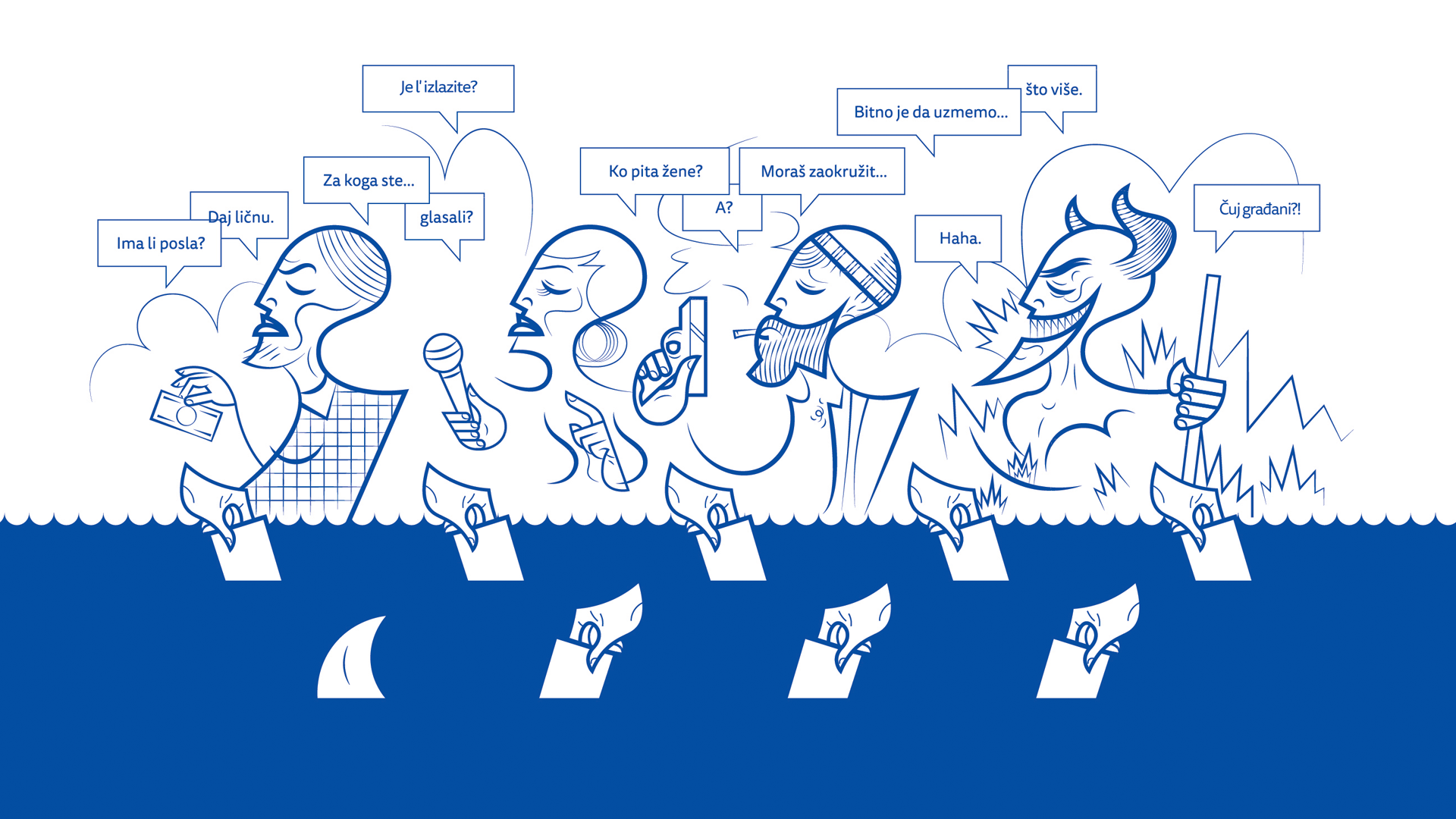Legitimacy and integrity of elections – a necessary step towards European values
How much is the BiH electoral system in line with the criteria of the European Union?
The answer to this question is given in the first report within the regional research “Western Balkans in the EU Accession Process: Fulfilling Political Criteria” conducted by UG “Why not” in cooperation with partners in the countries of the region – Center for Democratic Transition from Montenegro, Research Center Transparency and Accountability (CRTA) from Serbia, and the Metamorphosis Foundation from Macedonia.

Our first report relates to the electoral system and the conduct of elections, and the next topics will also be from the EU’s political criteria – the judiciary, corruption and organized crime, the media, and public administration reform. The research is based on a set of clearly defined indicators, which we will continue to follow in the coming years. The annual reports will also serve to compare the results between our four countries, in order to obtain a comparative regional picture on these issues.
Summary of the election report
The issues of the electoral process and electoral legislation in Bosnia and Herzegovina are discussed for more than 15 years and at least 4 electoral cycles. Numerous irregularities and complaints about the election process were followed by the recently conducted General Elections, which can be said to represent the culmination of the already noted weaknesses of the electoral system, with the emergence of new problems that further undermined the confidence in the electoral process. The reform of the electoral system and the adoption of international electoral standards are equally long-standing topics in the Bosnian public.
However, apart from a few cosmetic changes and changes that have further strengthened partitocracy and reduced the level of democracy in the elections, the political elites in BiH do not mainly deal with the mentioned changes, maintaining the status quo. The recommendations of the international community are thus presented as unproductive due to the complex constitutional system, with ignored ones for which there are no obstacles at all. Bosnia and Herzegovina, as a transitional country, is still struggling with the harmonization of the electoral system with the values of the European Union.
Over the past two decades, every election cycle has been followed by a series of irregularities that are repeated before each election, including the lack of choice of voter lists, biased voting boards, and an outdated voting system that allows manipulation of voters’ will. In addition to the aforementioned continuous problems, the last election cycle was additionally violated by a legal vacuum that arose when the Constitutional Court of BiH put some members of the Electoral Law out of force, thus jeopardizing the implementation of electoral results, that is, the establishment of a body of legislative and executive power in BiH.
Bosnia and Herzegovina has not recorded good results in implementing recommendations of international organizations and their incorporation into electoral legislation. This is partly the result of the fact that the law is an optional law and that international organizations and institutions, in accordance with their mandate, refrain from proposing concrete solutions for individual countries, but rather point to problems that need to be resolved, and these recommendations are ultimately not binding organs in Bosnia and Herzegovina.
The implementation of the judgments of the European Court of Human Rights in Strasbourg is still pending, as well as the recommendation of international observation missions that would greatly advance the entire democratic system in Bosnia and Herzegovina. It is clear from everything that Bosnia and Herzegovina needs a thorough reform of the electoral system, both in terms of the legislative framework and in terms of practice. In order to contribute to the acceleration and intensification of these reforms, we have prepared an assessment of the fulfillment of the political criteria for membership in the European Union (EU) regarding fair and free elections.
The European Commission (EC) does not treat elections within a specific negotiating chapters, but through evaluating the functioning of democratic institutions as one of the political criteria, and in that it relies mainly on the findings of the OSCE Office for Democratic Institutions and Human Rights.
Concerning concrete recommendations for improving the electoral system in Bosnia and Herzegovina, we draw attention to the most important ones and these are the ones that should be approached as soon as possible:
- Implementation of the judgments of the European Court of Human Rights (Verdicts Sejdić and Finci v. Bosnia and Herzegovina, Zornić v. Bosnia and Herzegovina Judgment, the judgment “Pilav v. Bosnia and Herzegovina” and the verdict “Šlaka v. Bosnia and Herzegovina” directly related to discriminatory provisions of the Constitution of Bosnia and Herzegovina and the Election Law of Bosnia and Herzegovina)
- Amendments to the Constitution of Bosnia and Herzegovina (enabling active and passive voting rights for all citizens of Bosnia and Herzegovina regardless of nationality and entity affiliation)
- Amendments to the Election Law of Bosnia and Herzegovina in order to prevent electoral fraud, depoliticising the electoral process, strengthening the legitimacy of elections, and improving the electoral system in Bosnia and Herzegovina
- Implementation of recommendations of the Venice Commission regarding the election of members of the House of Peoples of the Parliamentary Assembly of Bosnia and Herzegovina and the Parliament of the Federation of Bosnia and Herzegovina.
- Implementation of OSCE / ODIHR recommendations on the transparency of the overall process on the election day
- Better and better implementation of existing regulations, and strengthening of the capacities and independence of institutions for carrying out the election process.
Legitimitet i integritet izbora – neophodan korak ka evropskim vrijednostima